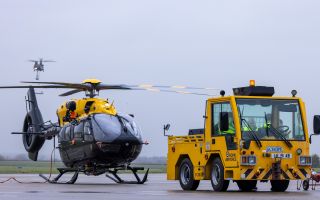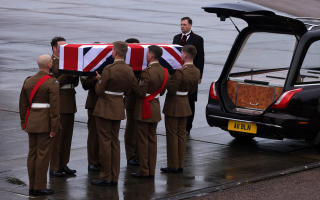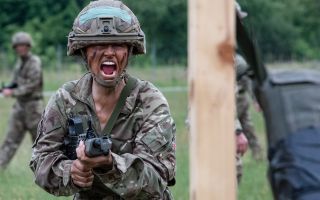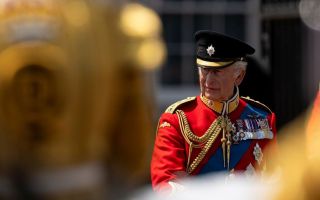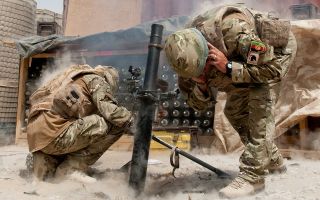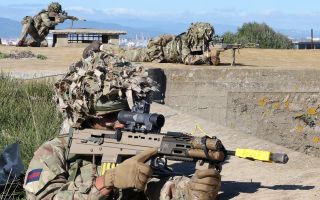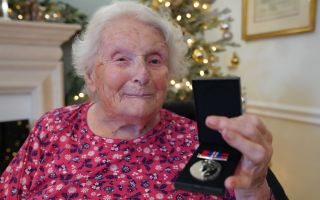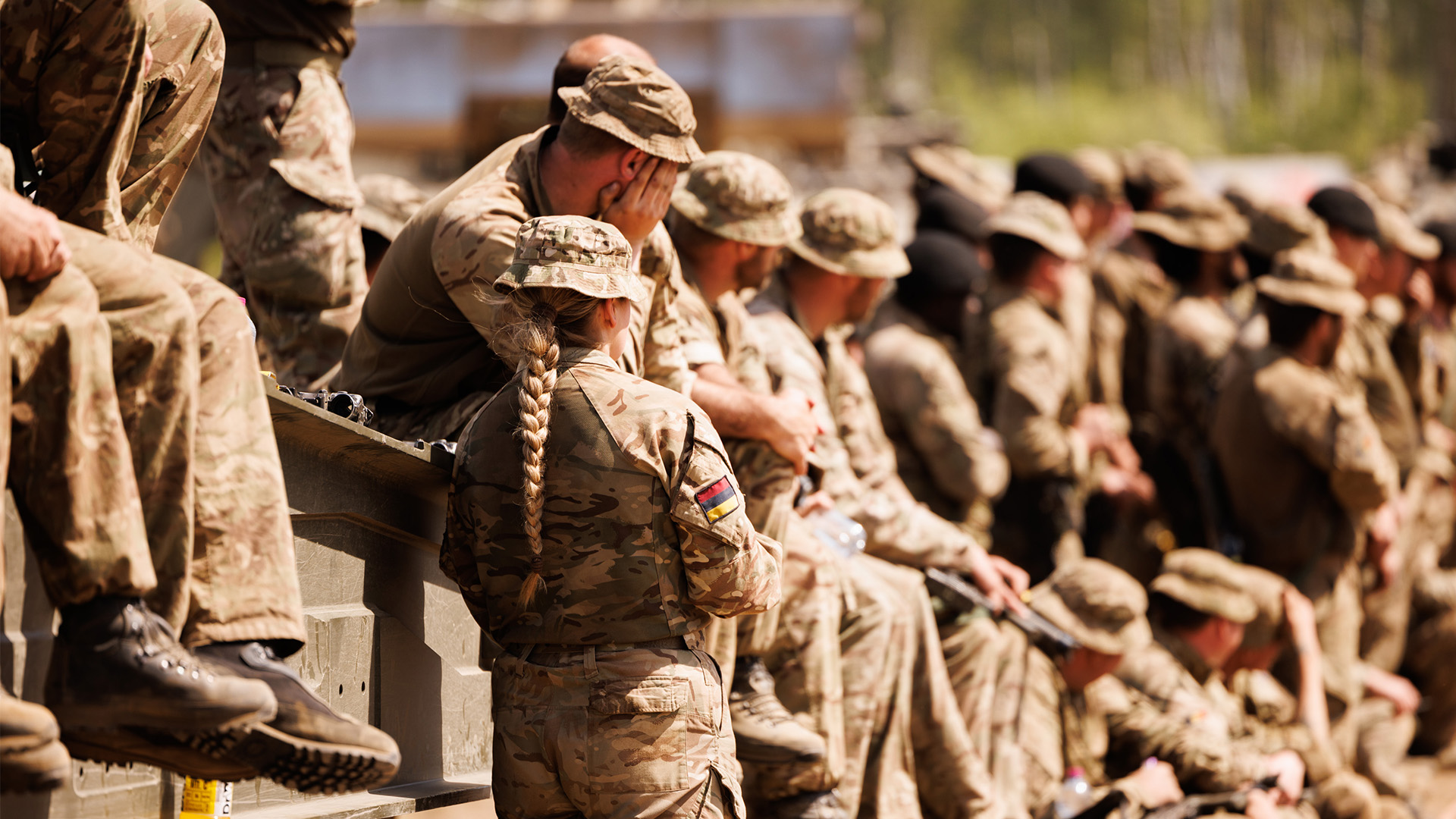
Endemic: Two-thirds of women in military have experienced sexualised behaviour

More than two-thirds of women serving in the regular Armed Forces have experienced sexualised behaviour in the last 12 months, according to a survey conducted by the MOD.
The survey is the first to be carried out across the military and represents the perspectives of respondents from across both regular and reserve Armed Forces.
It found that 67% of women and 34% of men had experienced at least one type of sexualised behaviour during their service.
The survey defined 19 types of sexualised behaviour, divided into four categories: verbal, non-verbal, cyber and physical.
Examples of sexualised behaviour range from jokes and cat-calling to indecent exposure and sexual activity without consent.
Jokes or comments of a sexual nature were the most commonly reported experience, with 58% of women and 26% of men reporting this.
The survey also charts significant levels of physical sexual harassment and behaviour, with 32% of women experiencing unwelcome touching and 8% subjected to nonconsensual sexual activity.
Driving cultural change
Responding to the survey, Minister for Veterans and People Louise Sandher-Jones MP said the survey results were "wholly unacceptable".
"As a veteran myself, this mission is deeply personal to me and I want our military to be the best in class on this issue", she added.
Chief of the Defence Staff Air Chief Marshal Sir Rich Knighton said the results "show just how much more I, and leaders at every level, need to do to stamp out behaviour which has no place in the UK Armed Forces".
He said survey data would help to tackle unacceptable conduct and highlighted that more men and women had come forward to raise complaints since the military had implemented independent reporting mechanisms and introduced a new Service complaints app.
According to the survey, women were more likely (48%) to tell someone that they had experienced sexualised behaviour compared to men (18%).
Around a quarter of women who decided not to tell anyone about their experience did so because they did not think anything would be done about it. A quarter also said they were worried they would be viewed as causing trouble.
Delayed action
Assessing the levels of sexualised behaviour across the Armed Forces was first recommended by Sarah Atherton MP in her 2021 Defence Committee review into women in the military.
The report recommended that the MOD should "commit to tri-service sexual harassment surveys annually" to better handle "unacceptable behaviours" within the military.
This is the first survey that has been conducted since the report was published in 2021; it’s unclear whether the MOD plans to hold such surveys annually.
Regular soldiers were most likely to experience sexualised behaviour in the workplace at either a military home unit or training unit (76%). One in five also experienced such behaviour in a workplace while deployed (20%) or on a military exercise (19%).
Of the 19 behaviours cited in the report, 17 were classified as sexual harassment by more than 80% of both regular and reserve soldiers.
The most commonly cited behaviour, jokes and comments of a sexual nature, were defined as sexual harassment by at least 67% of regular soldiers and 74% of reserves.
Efforts to educate
Prior to the release of the survey results, the MOD said it would launch a training programme to tackle unacceptable sexual behaviours across the forces.
The programme, which was first reported by The Times, will cover topics such as consent, misogyny and so-called incel culture, an online subculture of predominantly heterosexual men who identify as involuntary celibates and blame women and society for their lack of romantic or sexual success.
Catterick Garrison and Plymouth naval base will be the first to receive the training, before a wider rollout in 2026.
Armed Forces charity SSAFA has also launched a "Safe to Serve" initiative, which provides dedicated support to women experiencing sexual harassment or other kinds of abuse within the military.
Responding to the survey, Lynne Doherty, Director of Social Care Operations for SSAFA, said: "That this type of inexcusable behaviour takes place will come as no surprise, but the scale of it is a shock.
"Safe to Serve will ensure those women are believed, supported and protected."
With additional reporting by Sophie Perryer and Kirstie Chambers

